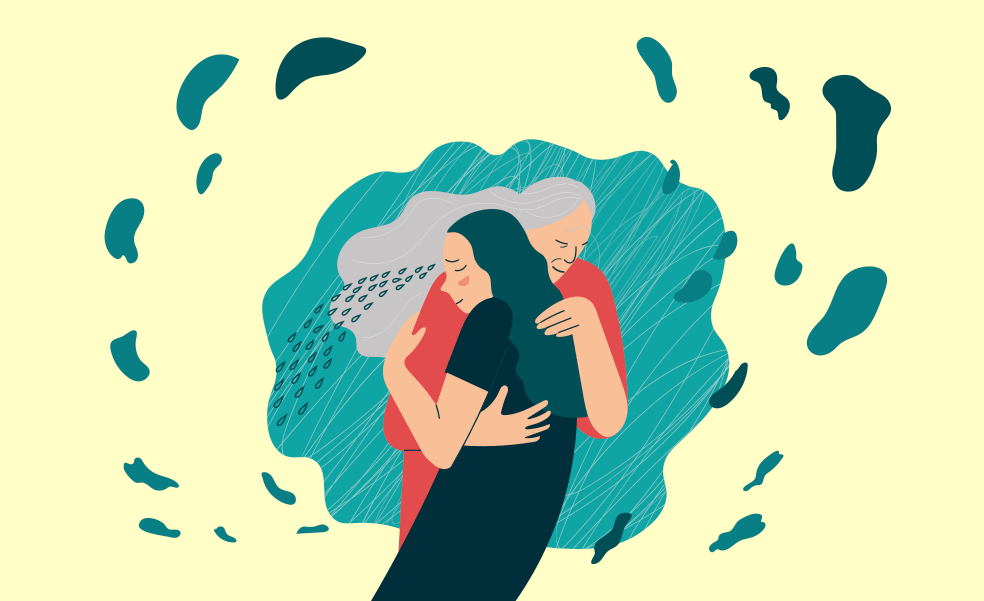Do we really mellow with age?
Older and nicer. A study reveals that ageing makes human beings friendlier and happier
Fermín Apezteguía
Friday, 2 December 2022, 12:34
Getting older makes us nicer. A study carried out in the United States reveals that people feel more satisfied with themselves and are more concerned with the wellbeing of others as they get older.
Although there are always exceptions, it is true that the older we get, the more caring, friendly and empathetic we become.
The overflow of compassion seems to be related to the production of oxytocin, the hormone that's very on trend in scientific and psychological fields. The human brain produces this hormone in larger quantities as we get older.
Is it our attitude to life which increases oxytocin production, or the other way round?
Is the production of the 'happiness hormone', as it has been nicknamed, that makes us better people? That is still unknown.
"I wouldn't be able to tell you," says geriatrician Naiara Fernández, director of the assistance network Igurco. "What is proven and confirmed by our experience is that dependent people are in the majority of the group and increasingly participate in charity work, patient associations or welfare religious groups.
"This participation is, without doubt, what contributes to feeling better and being happier," says the expert.
The peer reviewed work, published in journal Frontiers in Behavioral Neuroscience is written by Paul Zak, professor at Claremont Graduate University in California, internationally renowned for its expertise in the field.
"The satisfaction that we feel in life is very much related to our brain chemistry," Zak states.
Philosophy told us so
The study shows that the release of oxytocin increases with age, which scientists have deduced is due to the fact that people are more concerned with social issues as they age.
"Our findings are coherent with the majority of world religions and philosophies which claim that satisfaction increases upon helping others," states the lead investigator, an expert in neuroeconomics, a new discipline which studies how the brain makes and processes economic decisions, and how human values influence them.
Oxytocin is a neurochemical, a hormone related to attachment, trust and generosity.
Zak's team wanted to investigate if there was a neurochemical explanation for the fact that older people dedicate more time and money to charitable causes.
"During our youth, we are more concerned with consumerism, personal satisfaction and work.
"We are more focused on paying the mortgage and raising kids. We are not capable of seeing beyond our own necessities," Naiara Fernández states.
A video of a boy with cancer
The investigators recruited more than 100 participants aged between 18 and 99 who watched a video of a boy with cancer. Each participant had a blood test before and after the screening to measure levels of oxytocin.
The volunteers also had the option to donate part of their participation payment to a childhood cancer charity.
"The proposal allowed us to investigate prosocial behaviour," Zak explained.
The investigators also gathered data about the emotional state of each participant, with the aim of making personalised information about the general satisfaction of the candidates available.
What happened?
The results were not unexpected. The most generous people, those who participated in voluntary organisations and charity, and those who were more likely to help others released higher levels of oxytocin.
And this measurement increased as age did.
"This is the first time that it has been shown that there is a clear change in production levels of oxytocin in relation to social behaviour," which could suggest that the more love there is in an action, the more 'happy hormones' the brain generates.
It seems that compassion does make us better people and that we do mellow with age.
The hormone that makes us human
The pituitary gland is located at the bottom of the skull and has two main functions. Aside from managing other glands, those found in the kidneys, thyroids, ovaries and testicles, it also regulates functions like sexual activity. The production of oxytocin is dependent on the pituitary gland, a hormone linked to attachment, which was traditionally believed to help establish a bond between mother and newborn. Today it is believed that this hormone plays a host of other important roles, mainly those that relate to the capacity to be human.
